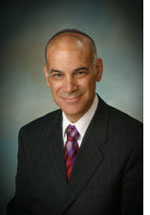By Rabbi Leonard Rosenthal

SAN DIEGO — One of the most beloved children’s songs of the Passover Seder is the Frog Song:
One day king Pharaoh awoke in his bed,
There were frogs in his bed and frogs on his head.
Frogs on his nose and frogs on his toes.
Frogs here, frogs there,
Frogs were jumping everywhere!
Although we sing this song with great glee, for the Egyptians the Ten Plagues were no laughing matter. The frog epidemic, hail, disease, and death of the first born brought much pain and grief. Pharaoh’s hardheartedness proved not only his, but his people’s undoing.
While the Haggadah refers to these events as plagues, the Torah calls them “signs and wonders.” They were not meant to punish the Egyptians as much as to prove to them and to Pharaoh that the Egyptian monarch was not the Master of the Universe.
They were not even necessarily “miracles,” that is, breaks in the natural order. Much has been written attempting to explain the plagues as natural phenomena which occurred at fortuitous times.
In his book When Bad Things Happen to Good People, Rabbi Harold Kushner writes: “The biblical mind saw the earthquake that overthrew Sodom and Gomorrah as God’s way of punishing the people of those cities for their depravities . . . But most of us today see a hurricane, an earthquake, a volcano as having no conscience. I would not venture to predict the path of a hurricane on the basis of which communities deserve to be lashed and which ones to be spared.” (P. 53)
So, if God’s Will is not revealed in natural phenomena, where is God to be found?
Again, Rabbi Kushner offers useful advice: “The flood that devastates a town is not an ‘act of God,’ even if the insurance companies find it useful to call it that. But the efforts people make to save lives, risking their own lives for a person who might be a total stranger to them, and the determination to rebuild their community after the flood waters have receded, do qualify as acts of God.” (p. 142)
If you want to find the Hand of God in disasters, do not look for it in the death and devastation, but rather in the hearts and good deeds of those who step forward to alleviate the suffering.
*
Rabbi Rosenthal is spiritual leader of Tifereth Israel Synagogue in San Diego. He may be contacted via leonard.rosenthal@sdjewishworld.com